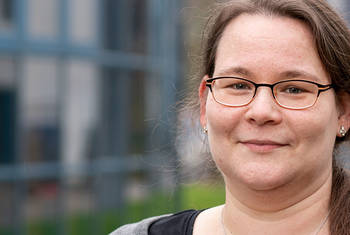Sonja Sudimac Does Going For a Walk In a Natural Environment Reduce Stress?
Sonja Sudimac is a pre-doctoral fellow in the Max Planck Institute for Human Development in Berlin, where she works in the Lise Meitner Group for Environmental Neuroscience and the International Max Planck Research School on the Life Course (LIFE). Completing previous studies at the Technical University of Kaiserslautern and at the University of Belgrade, Sudimac's research focuses on the neural mechanisms that underlie stress, emotions and cognitive processes in urban and natural environments. Sudimac’s work has been published in journals including Molecular Psychiatry, Frontiers in Psychology and the International Journal of Environmental Research and Public Health.
Area of Research
Neuropsychology
since 2019
Pre-doctoral fellow
Max Planck Institute for Cognitive for Human Development
since 2020
Pre-doctoral fellow
International Max Planck Research School on the Life Course
2016-2019
MSc in Cognitive Science
Technical University of Kaiserslautern
2015-2016
MSc in Educational Psychology
University of Belgrade
2011-2015
BSc in Psychology
University of Belgrade
 © Maximilian Dörrbecker
© Maximilian Dörrbecker
Max Planck Society
"The Max Planck Society is Germany's most successful research organization. Since its establishment in 1948, no fewer than 18 Nobel laureates have emerged from the ranks of its scientists, putting it on a par with the best and most prestigious research institutions worldwide. The more than 15,000 publications each year in internationally renowned scientific journals are proof of the outstanding research work conducted at Max Planck Institutes – and many of those articles are among the most-cited publications in the relevant field." (Source)
Institute
Max Planck Institute for Human Development
"The Max Planck Institute for Human Development is dedicated to the study of human development and education. Researchers of various disciplines – including psychology, education, sociology and medicine, as well as history, economics, computer science and mathematics – work together on interdisciplinary projects at the Berlin Institute. The research questions they examine include how people make effective decisions even under time pressure and information overload, which effects the institution of school has on students’ development and learning processes, how the interaction between behaviour and brain function changes over the lifespan, as well as how human emotions change in a historical context and how they have affected the course of history itself." (Source)
Map
Researchers have long recognised that individuals living in cities experience a higher incidence of mental health issues than those living in the countryside. In this video, SONJA SUDIMAC compares the impact of walking in urban and natural environments on the amygdala, a brain region more active under stressful conditions. Sudimac’s study compares amygdala activity in subjects after a one hour walk in a forest versus a busy city street. Where amygdala activity reduced after the former, it remained stable after the latter, demonstrating the salutogenic effects of going for a walk in nature. The findings are relevant to urban planners as well as to health professionals.
LT Video Publication DOI: https://doi.org/10.21036/LTPUB101089
How nature nurtures: Amygdala activity decreases as the result of a one-hour walk in nature
- Sonja Sudimac, Vera Sale and Simone Kühn
- Molecular psychiatry
- Published in 2022









